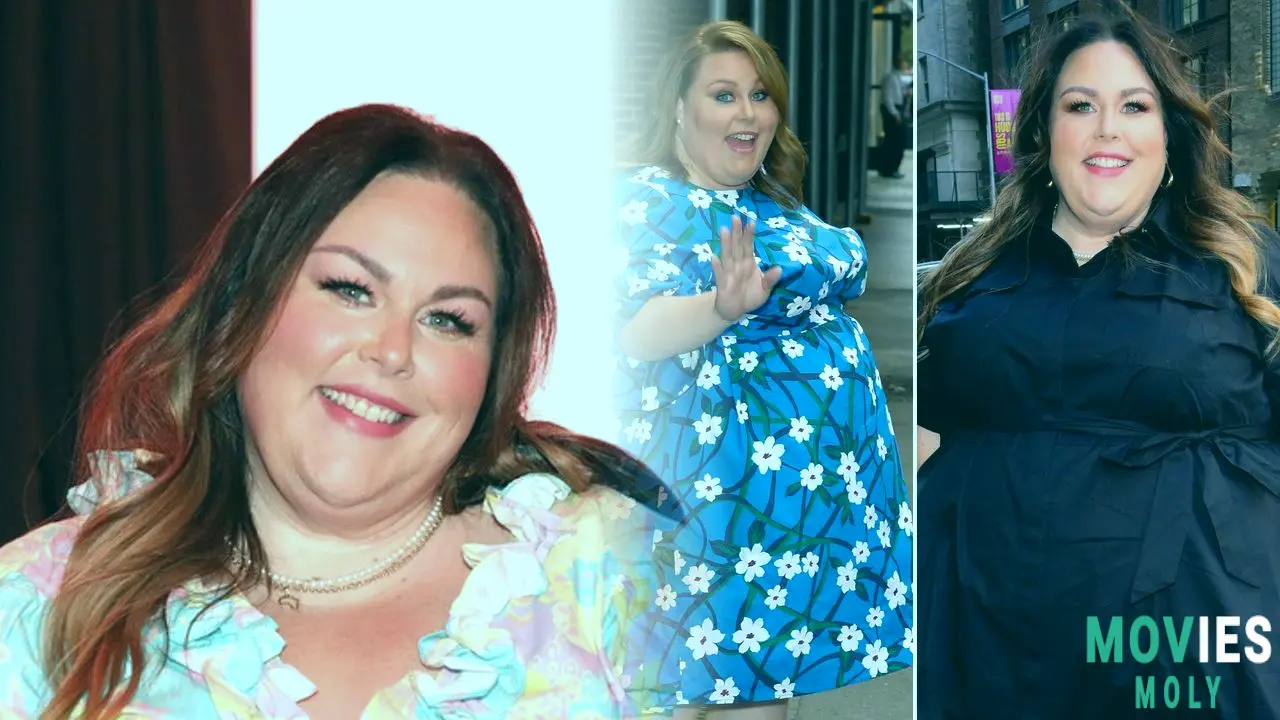For years, we knew Chrissy Metz as Kate Pearson, the explosive emotional center of This Is Us, a woman whose difficulties with identity and body image parallel the actor's own. But now, when she leaves Hollywood and takes on roles as visceral as a firefighter nurse or an advocate rewriting her own life script, something significant has occurred. Metz wasn't just portraying a heroine seeking self-discovery; she was fighting for her soul. As an entertainment reporter who has followed the careers of dozens of musicians, I'm astounded by how daringly she's sacrificed mainstream fame for something sharper and more authentic.
Chrissy Metz's path has always struck me as the most heartbreakingly meta story on television. Kate Pearson struggled with her health and worth, while Metz was being examined for her weight in real time—all against the backdrop of a culture obsessed with decreasing bodies to fit into Hollywood's limited standards. This relentless pressure reached an unbearable breaking point, which she has only lately admitted to. What arose from the tumult, however, felt like a completely new chapter not only for Metz, but also for performers stuck in the industry's oppressive expectations.
Leaving the "Dog Eat Dog" Culture That Nearly Broke HerWhy Her Move to Nashville Matters
Chrissy Metz endured Los Angeles for 21 years—the petty competitiveness, the dehumanizing grind, and the repeated "What's it for?" questioning following each soul-baring audition. Last year, she quietly packed her belongings for Nashville. When she told PEOPLE about it, her words resonated with me like church bells: "In L.A., it was always like, 'Oh, you have an audition? What is it for? It was all extremely dog-eat-dog! "There's so much less stress now." Her disillusionment seemed all too familiar; Nashville is more than just a change of scenery; it's a rejection of the vacuum-sealed toxicity that strips performers dry.
Here's the terrible truth that actors avoid revealing: Obsession is valued more highly in Hollywood than inspiration. You become cash in someone else's branding strategy. Chrissy did more than just avoid traffic; she consciously swapped alienation for community. "I was in Los Angeles for 21 years... "It's just a better quality of life here," she emphasizes, and the difference shows in everything she now creates. Her children's books about religion and sentiments (When I Talk to God, I Talk About sentiments), as well as her grounded, big-hearted heroes, are examples of creativity created after leaving the claustrophobic Hollywood echo chamber.
"Faith in the Flames" demonstrates who she has become.
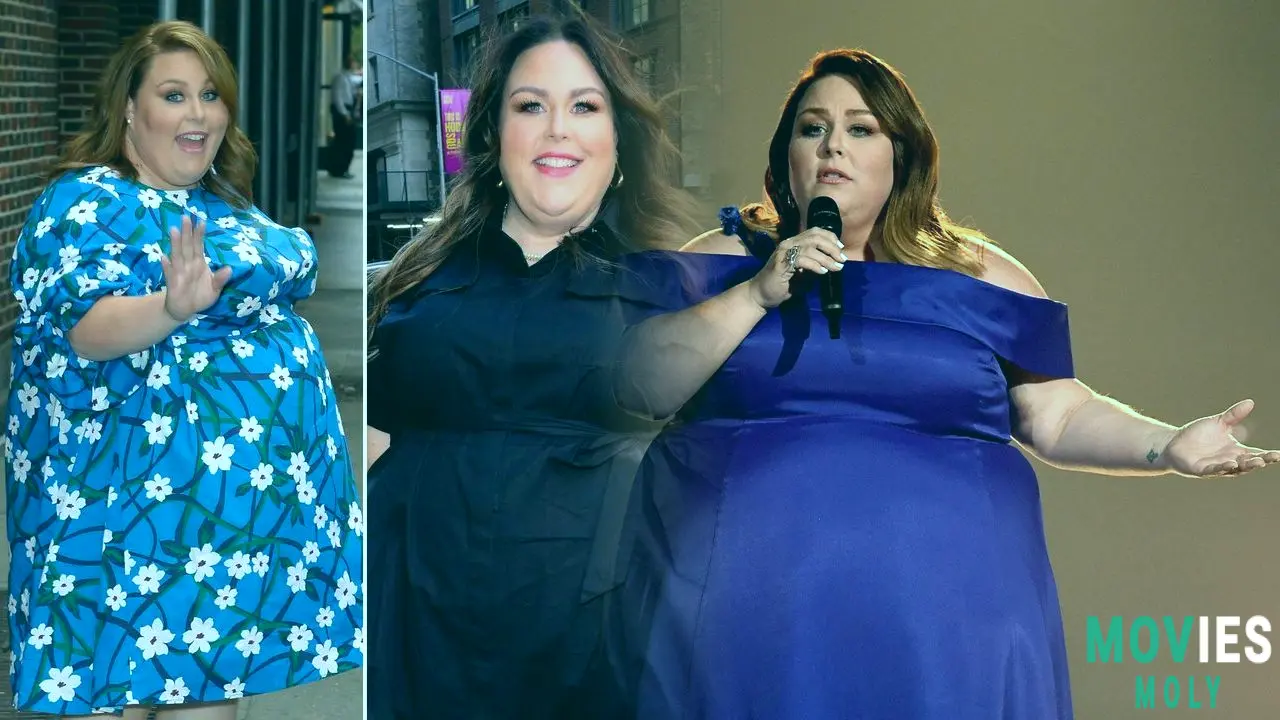
The Nurse Role Speaks Volumes About Metz
Metz's development from personal catharsis to cultural critique occurs on Lifetime's Faith in the Flames. Metz, who plays nurse Nichole Jolly, a real-life caregiver who saved many during California's terrible Camp Fire, avoids the "dramatic weight arc" trappings Hollywood constructed for her on This Is Us. When discussing the part, Metz struck a nerve that few performers in her position would: "Nichole's bravery and devotion to others, even when everything around her was collapsing, is something we don't see enough of." This wasn't another role chosen by a management; Chrissy wanted a character based on service, not trauma.
What struck me most is Metz's will to seize this opportunity. The film's denouement is anchored in simple acts of humanity, rather than heroic moments sculpted for Oscar reels. Jolly treated wounds with unsteady hands, tracked heart rates without equipment, and whispered reassurances under darkened skies. It's acting stripped bare of performance—which makes it unforgettable. This is the beauty Chrissy discovered after abandoning sanitized narratives: refusing to martyr her characters or her body.
The Loneliness Of Weight Struggles—And Her Radical Honesty
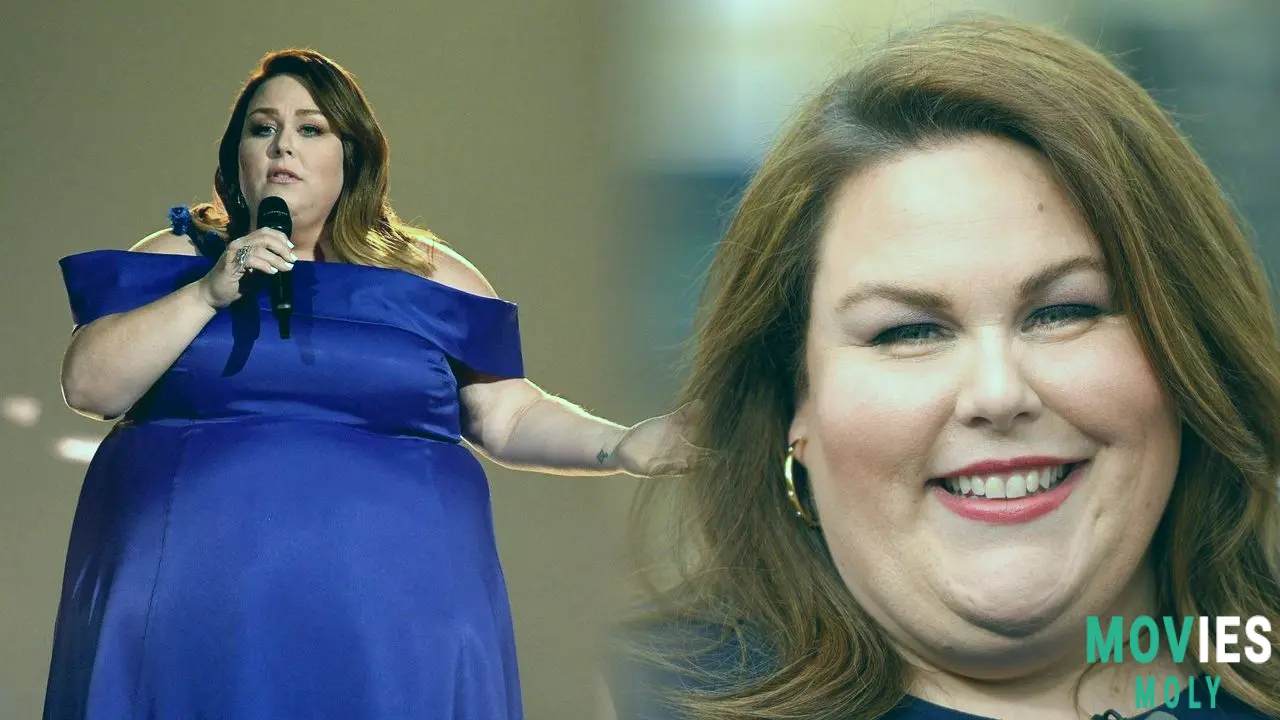
Ozempic, Psychology, and How She's Destigmatizing Scars.
It's no secret that Metz's 100-pound weight loss struggle turned into a cultural obsession. But, unlike many stars who hide their anxieties behind nonspecific health campaigns, Chrissy went raw in a TMZ feature: "I was nervous about aging... osteoporosis or arthritis," she admitted—fears compounded by the knowledge that Hollywood abandons women who flout youth ideals. This is when her change completely astounded me. She explained that she uses Ozempic in conjunction with severe strength training—not as a shortcut, but as a tool as useful as dumbbells. "I want to help destigmatize it," she said, acknowledging what many of her peers whisper in low tones.
Here's why her honesty is important: unlike Kate Pearson, whose fictitious weight battle was conveyed through lachrymose memories, Chrissy Metz has framed her genuine journey as a psychological reckoning—one fought with demons deeper than calories. Surgery was never an option: "It's putting a band-aid on a larger problem," she told Us Weekly. Such openness removes the stigma that surrounds weight discussions. In an era dominated by extremes—shame hushed or ads disguised as vulnerability—Metz established a third path: complex humanity spoken unequivocally.
Prayer, Feelings, and the Holy Southern Community Spirit.
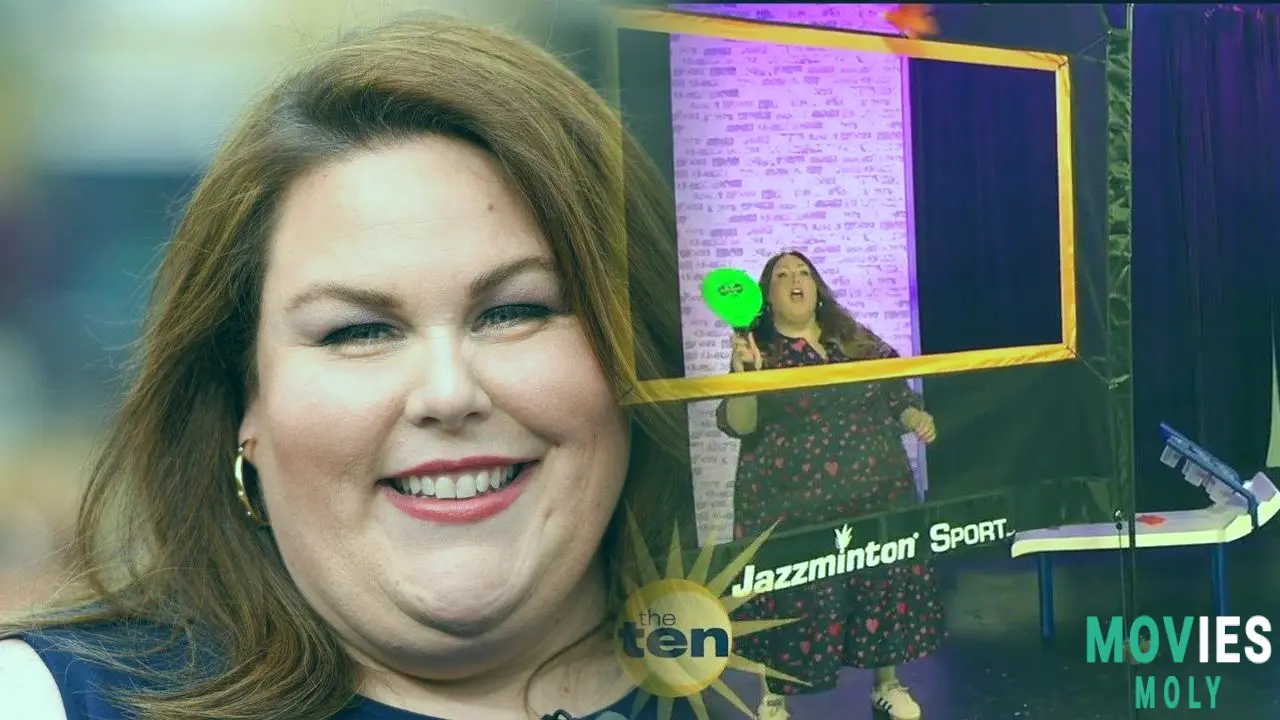
Art Beyond the Hollywood Sermon
Metz's writing career highlights her significant divergence from the traditional celebrity playbook. When she writes children's books about faith—including one titled When I Talk to God, I Talk About Feelings—she rejects binaries. Her faith is reverent and nuanced, impassioned without preaching. "It's not something I feel the need to beat people over the head with," she told the newspaper."Everyone has their journey." That mild authority defines her contemporary worldview, and its impact is palpable.
The community genuineness she evokes is not coincidental: she moved to Nashville specifically for its warmth. Her approach seems fairly innovative for LA-area celebrity. While celebrities promote the latest perfume or self-help spiritualism, Metz provides startling familiarity. She prays for strangers on airplanes—"every single person who gets on the plane... every piece of the plane"—without any fake piety. It's real angst turned into hope. That raw vulnerability—evaporating Nevada deserts, harvest moons illuminating Tennessee valleys—now pervades everything she touches.
Crashing Through Ceilings Without Apologies

This is the version of Chrissy Metz we've been waiting for.
Looking at Chrissy Metz now, free of Kate Pearson's extended shadow and studio-physics requirements, I see an artist who has reclaimed control of her narrative. Movies like Faith in the Flames are more than just projects; they demonstrate her resistance to be reduced to sob-story cliches. Her unvarnished honesty about weight or faith is more than just transparent theater; it intentionally shatters barriers to stigmatizing discourse. Most importantly, by rejecting the Hollywood formula, she restored her humanity.
Metz reminds me of Dark Willow resurfacing to manage her magic: fire is honed, not scared. Her move to Nashville exemplified that catharsis. Her books—instructive and gentle—reflect her spiritual development. Behind it all lies her firm awareness that there are no shortcuts to self-worth. Nashville travels long miles to escape LA's soul-crushing expectations. Faith cannot spare you from suffering; rather, it guides you through it. And healing the deepest scars necessitates embracing difficult truths. I've rarely seen an actress use her breaking point so effectively. Chrissy Metz is not leaving; rather, she is changing the rules.
Where to Watch Metz's Evolution Unfold
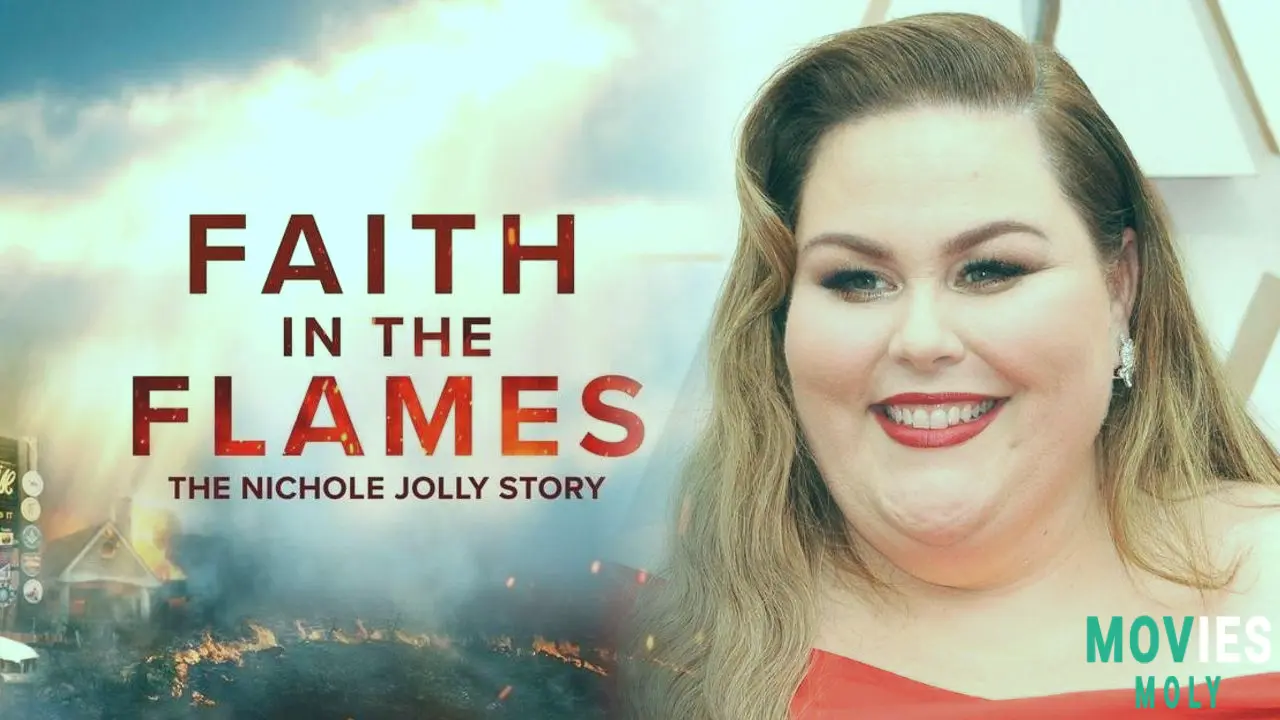
Watch Chrissy Metz's remarkable performance in Faith in the Flames: The Nichole Jolly Story, which is currently streaming on Lifetime. Her journey beyond Hollywood continues in her works, and each character she brings to life transcends clichés.
Questions about Chrissy Metz's Journey? Let us discuss:
1. Did Chrissy Metz lose weight expressly for these roles?No, her 100-pound weight loss emphasized lifespan and mobility over Hollywood's beauty standards. She prioritized strength training for health above beauty.
2. Why Nashville above other cities?Metz picked Nashville for its slower pace and social Southern friendliness, which provided a vital counterpoint to the transactional "dog eat dog" attitude she had seen in Los Angeles for decades.
3. How does her faith affect her work?It focuses on stories of resilience and compassion (such as Faith in the Flames). Metz's children's novels address faith and vulnerability without preaching.
4. Is she still acting after This Is Us?Absolutely, from playing nurse Nichole Jolly to future endeavors. Her roles now center around agency-driven characters rather than weight-centric tales.
5. Will she return to Los Angeles full-time?Unlikely. Metz is prioritizing her well-being right now—Nashville provides roomy living and familial proximity that LA cannot match.

